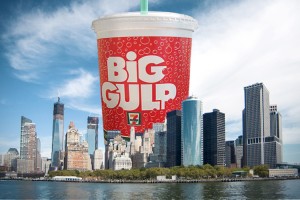A proposal set forth by previous New York City mayor Michael R. Bloomberg and the city’s Board of Health established that no soda over sixteen ounces could be purchased at fast food restaurants, delis or movie theaters. This was intended to combat the growing presence of obesity amongst the citizens of the city. Bill de Blasio, the current mayor of the city, has spoken out in support of the soda proposal as a means of keeping an eye on consumption in the city.
However, New Yorkers have vehemently spoken out against the ruling since it passed in 2012, claiming that the government has no right to order consumers what they can and cannot eat or drink. Consumers weren’t alone in their confrontation on the proposal; many powerful beverage companies were sent into a panic by the decision, as a fear set in that their products would be branded as a threat to public health. The American Beverage Association also spoke out against the ruling, as they claimed it took away the consumer’s freedom.
According to an article recently completed by The New York Times, the debate has finally come to a close, as the state’s highest court has ruled to override the soda proposal. The decision, which was reached by a four to two vote, focused on the reach of the original ruling; the court believed the proposal’s affect on the everyday lives of millions meant the Board of Health had overextended its reach. The affect on the personal lives of those residing in New York inclined the New York State Court of Appeals to believe a decisions such as this would be better left in the hands of the City Council.
On the other hand, Judge Susan P. Read, who voted against overturning the soda proposal, indicated that the new ruling infringes on the entire purpose behind the Board of Health, which is intended to serve the matter of public safety, especially when the general public may not know what’s best. Read referred specifically to the board’s initiatives to regulate the city’s supply of water and their decision to ban the use of lead paint in homes. Lawmakers, much like the judges sitting on the Court of Appeals, also have mixed feelings on the issue. Some feel that the ruling checks the board’s ability to make decisions far too strictly, while others believe the ruling finally sets the board’s power back to the moderation it should hold.
Blasio has announced that, in light of the disappointing lost at the Court of Appeals, he and his advisors are working to create a plan that will work to combat obesity for the future.

